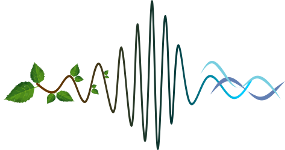Nature recordings portray the acoustic dimension of the natural world. Since many animals use sound on a daily basis, sound recordings can be used to sample and monitor biodiversity. Here we advocate the need to preserve sound recordings and establish a preservation strategy taking into account factors like storage capacity, scientific interest and historical value. Soundscape recordings are valuable scientific specimens that constitute an acoustic memory of habitats and ecosystems.. If preserved, we can secure this primary source information guaranteeing the verification principle and also enabling the use of recorded specimens to test in the future new hypotheses, either derived from technological or conceptual developments. However these recordings might be at risk. We recently estimated a loss rate of 20% for nature recordings made in Portugal with the highest loss risk being the associated with its misplacement. To avoid inadvertent losses a preservation strategy should be put into action in monitoring program. The preservation strategy should account for the storage and data-curation capacity, combined with the geographical, taxonomical and temporal coverage (both considering local and global scales). During the Global assessment of Animal Sound Archives coverage we found strong biased coverage towards birds, and northern hemisphere and South America. The preservation of soundscape recordings raise a new set of challenges at the data-curation level affecting both the conceptual and infrastructure dimensions as for the preservation of recordings from the project SPEA/LIFE07/NAT/P/000649 in the Portuguese Sounds Archive. Overall, our results point to the need of incorporating from conception a preservation strategy in this type of projects. Strategy that should ideally be developed in association with institutions devoted to long-term data-curation (Sound archives) securing resources for preservation and according to standards.
Financial Support: FCT, Portugal (SFRH/BPD/34846/2007 and HC/0009/2009); Microsoft Research FAPESP Virtual Institute (NavScales project: 2011/52070-7)/brazil; CBA, post-doc CAPES/ Brazil.

 PDF version
PDF version
